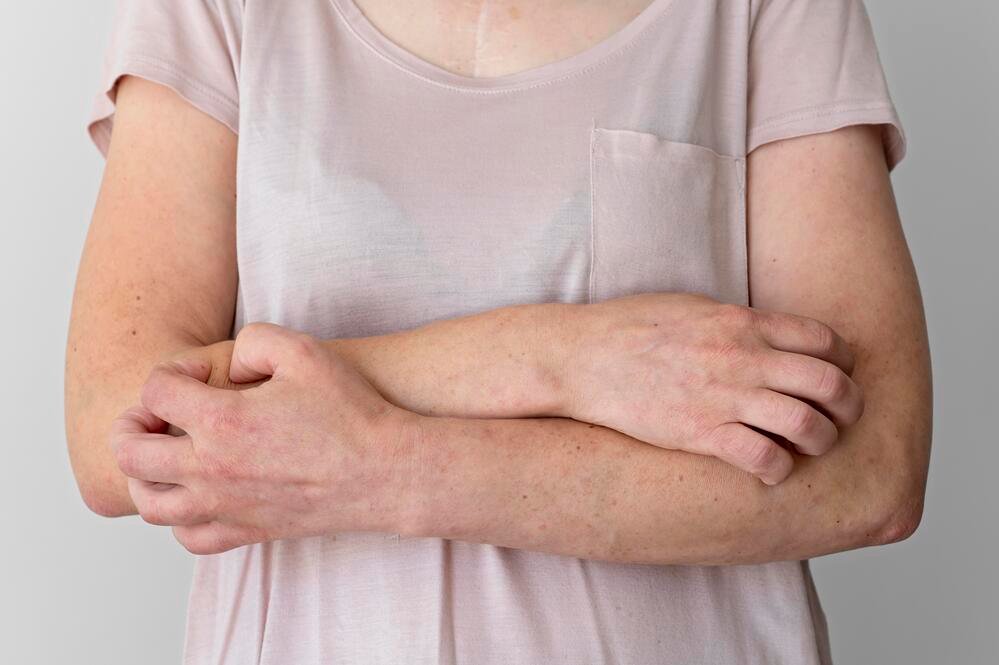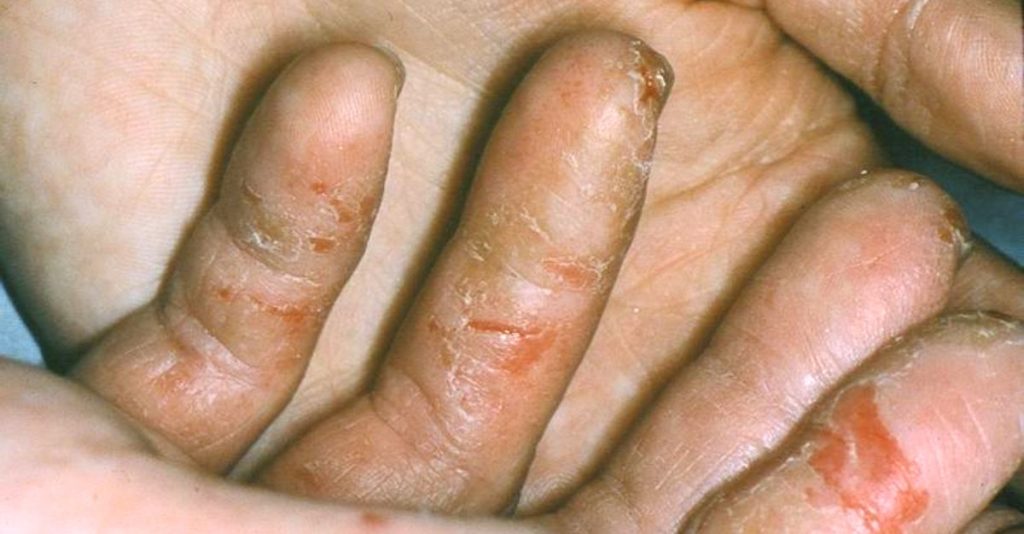Are you struggling with red, itchy patches that just won’t budge? You’re not alone. Millions of people worldwide grapple with eczema, wondering when their next flare-up might strike and how long it’ll last.
So, how long does eczema rash last? The truth is, eczema duration can range from a few days to weeks, but with proper treatment, you can manage your skin’s health and achieve long-lasting relief.
If you’re looking for gentle, hypoallergenic skincare in Malaysia, explore Yagishi’s natural skincare range designed for sensitive skin.
What Is Eczema? Understanding This Common Skin Condition
Eczema is a chronic inflammatory skin condition that disrupts your skin’s natural protective barrier. Also known as atopic dermatitis (the most common form), it causes intense itching, redness, and dry skin that can significantly impact your quality of life.
Is eczema contagious? Absolutely not! It’s an immune system response, not an infection you can pass to others.
Recognising Eczema Symptoms: What to Look For

1. Early Warning Signs
- Persistent itchy skin
- Red or brownish patches
- Dry, sensitive areas
- Rough, scaly texture
2. Severe Eczema Indicators
- Oozing or crusting
- Skin discoloration
- Thickened skin from constant scratching
- Secondary infections
Eczema-safe skincare products, such as deeply moisturising lotions and gentle, eco-friendly body washes for dry or sensitive skin, can help support your skin.
Types of Eczema: Which One Do You Have?
| Type | Description |
| Atopic Dermatitis | Most common; often linked to family history and allergies |
| Contact Dermatitis | Triggered by specific irritants or allergens |
| Dyshidrotic Eczema | Small blisters on hands and feet |
| Nummular Eczema | Coin-shaped patches |
| Stasis Dermatitis | Affects lower legs due to circulation issues |
What Causes Eczema? Unravelling the Triggers
If you’ve ever wondered what causes eczema flare-ups, the truth is that it’s usually a mix of internal and external factors. t’s typically a combination of:
1. Internal Factors
- Genetics: Family history plays a crucial role
- Immune system: Overactive inflammatory responses
- Is eczema an autoimmune disease? While not classified as one, it involves immune system dysfunction
2. External Triggers
- Environmental triggers (dust mites, pollen)
- Harsh chemicals in soaps and detergents
- Food allergies in some individuals
- Stress and emotional factors
- Weather changes
Effective Eczema Treatment: Your Path to Relief
1. Medical Treatments
- Topical steroids for inflammation
- Calcineurin inhibitors for sensitive areas
- Emollients to restore the skin barrier
- Phototherapy for severe cases
- Prescription medications when needed
2. Natural Remedies and Home Care
- Colloidal oatmeal baths for soothing relief
- Coconut oil as a natural moisturiser
- Aloe vera gel for cooling comfort
- Gentle soaps and fragrance-free products
Try Yagishi’s skincare bundle which includes a body wash and lotion made from natural ingredients that soothe and protect eczema-prone skin.
Treatment for Eczema: Building Your Daily Routine
1. Essential Steps
- Moisturising routine: Apply emollients twice daily
- Gentle cleansing: Use lukewarm water and mild soaps
- Stress management: Practice relaxation techniques
- Dietary changes: Consider anti-inflammatory foods
- Environmental control: Reduce triggers in your home
2. Professional Care
- Patch testing to identify specific allergens
- Regular check-ups with your healthcare provider
- Primary care coordination for comprehensive treatment
Managing Severe Eczema: When to Seek Help
If you experience:
- Persistent symptoms despite treatment
- Signs of infection
- Sleep disturbances
- Impact on daily activities
If your eczema persists far longer than expected and you keep asking yourself how long does eczema rash last, it may be time to consult a dermatologist.
Contact a dermatologist immediately. They may recommend advanced treatments like biologics or light therapy.
Natural Relief with Yagishi: Gentle Care for Sensitive Skin
Yagishi’s goat milk body lotion and body wash offer a natural alternative for managing eczema. Free from sulfates and harsh fragrances, these products provide:
- Gentle cleansing without irritation
- Deep moisturisation with natural ingredients
- Support for your skin’s protective barrier
- Suitable for the whole family
For long-lasting hydration, choose Yagishi Pure Goat Milk Body Lotion, our best goat milk lotion for dry and sensitive skin.
Clothing Choices That Won’t Irritate Your Skin
What you wear can make or break your eczema management. The wrong fabrics can trigger flare-ups, while the right choices support your skin’s healing.
1. Eczema-Friendly Fabrics
- Cotton: Soft, breathable, and naturally hypoallergenic
- Bamboo: Moisture-wicking with antimicrobial properties
- Silk: Smooth texture that won’t scratch sensitive skin
- Modal: Ultra-soft and gentle against inflamed areas
2. Fabrics to Avoid
- Wool: Can be scratchy and irritating
- Synthetic blends: May trap heat and moisture
- Rough textures: Anything that feels coarse against your skin
3. Smart Clothing Tips
- Choose loose-fitting garments to prevent friction
- Wash new clothes before wearing to remove chemicals
- Use fragrance-free detergents (gentle options work well with Yagishi’s natural approach to sensitive skin care)
- Choose for seamless or flat-seam construction
- Layer breathable fabrics rather than heavy materials
Pair your gentle fabrics with a hypoallergenic goat milk body wash , which is hydrating and safe for sensitive, eczema-prone skin
Common Food Triggers and How to Identify Them

While not everyone with eczema has food allergies, certain foods can cause inflammatory skin conditions and worsen symptoms in some individuals. Understanding potential dietary triggers is crucial for comprehensive eczema management.
1. Most Common Food Triggers
| Food Group | Examples | Why They May Trigger |
| Dairy | Milk, cheese, yoghurt | Inflammatory proteins |
| Eggs | Particularly egg whites | Common allergen |
| Nuts | Peanuts, tree nuts | High allergenic potential |
| Gluten | Wheat, barley, rye | May increase inflammation |
| Citrus | Oranges, lemons, tomatoes | High acidity levels |
| Processed Foods | Fast food, additives | Artificial preservatives |
2. How to Identify Your Triggers
a.) Keep a Food Diary
- Record everything you eat and drink
- Note eczema symptoms and severity
- Look for patterns over 2-4 weeks
b.) Try an Elimination Diet
- Remove suspected triggers for 3-4 weeks
- Reintroduce foods one at a time
- Monitor skin reactions carefully
c.) Work with Healthcare Professionals
- Discuss findings with your primary care doctor
- Consider allergy testing if patterns emerge
- Get guidance on nutritional balance
3. Anti-Inflammatory Alternatives
Instead of trigger foods, focus on:
- Omega-3 rich fish (salmon, mackerel)
- Leafy greens (spinach, kale)
- Berries (blueberries, strawberries)
- Probiotic foods (kefir, sauerkraut)
For more tips, read our guide on natural remedies for eczema and how goat milk can help relieve skin inflammation.
Breaking the Itch-Scratch Cycle
The key to eczema relief lies in:
- Consistent moisturising
- Identifying and avoiding triggers
- Using gentle, fragrance-free products
- Managing stress levels
- Following your treatment plan
Eczema in Different Life Stages
a.) Eczema in Babies/Infant
- Often appears as cradle cap or facial rashes
- Requires extra gentle care
- Usually improves with age
b.) Adult Eczema
- May develop later in life
- Often stress-related
- Requires comprehensive management
Conclusion
Living with eczema doesn’t mean accepting constant discomfort. By understanding what causes eczema flare-ups and managing them with the right care, consistent treatment, and gentle skincare products like Yagishi’s natural formulations, you can achieve significant improvement in your skin condition.
Ready to transform your skincare routine? Explore Yagishi’s complete eczema-safe collection and take your first step towards calmer, healthier skin. Our natural goat milk products provide the gentle care your sensitive skin deserves.
Contact Us today and let our team help you find the best products for your sensitive skin

